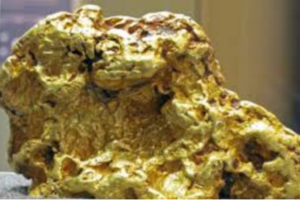
No country in the world is fully endowed with all the resources required for the livelihood of its citizens and for thousands of years nations big or small have been trading with each other to not only meet their demands for goods and services but also to generate income for their national economies.
However, international trade is not as simple as this but complex, demanding international regulations on tariffs and trade balances. That is why countries came together and formed General Agreement on Tariffs Trade (GATT) in 1947, which later on was replaced by WTO in 1995.
After several weeks of winning elections for 2025, President Donald Trump announced a substantial expansion of his tariff agenda, a key component of his plans to reshape much of the U.S. economy, announcing country-by-country tariffs and a 10% across-the-board tariff rate on all imports.
The tariffs appear to be cumulative, meaning they stack on top of previously existing tariffs; for instance, tariffs on Chinese products would increase to at least 54%, due to the stacking of prior tariff actions with yesterday’s announcement. The dramatic and consequential tariffs issued by the US president will have serious impacts not only on less developed countries but also on US consumers.
The baseline 10% tariff takes effect at 12:01 A.M. EDT., April 5, while higher country-specific tariffs on approximately 60 countries will fall into place at 12:01 A.M. EDT on April 9.
Here are some the new tariff actions announced as part of the Trump administration’s new “reciprocal” tariff push including EU (20%), China (34%), (Vietnam) 46%, Taiwan (32%), Japan( 24%), India (26%), South Korea (26%), Thailand (36%), Switzerland (31%), 10% baseline on all imports unless otherwise higher.
Though the tariffs were labeled “reciprocal” to trade barriers, they appear to be largely calculated off the current trade deficit that the U.S. has with each country, which has been confirmed by the Trump administration. Imports from some major trade partners like the United Kingdom, Brazil and Singapore appear to only be subject to the baseline 10% tariff rate.
Many current global tariffs are politically motivated, especially in today’s highly interconnected and geopolitically charged trade environment. While tariffs are traditionally used as economic tools to protect domestic industries or generate revenue, in recent years they have often been applied for political leverage or strategic influence.
For instance the U.S.–China Trade War that started much earlier in which the U.S. imposed tariffs on hundreds of billions of dollars’ worth of Chinese goods, citing intellectual property theft, trade imbalance, and national security concerns could be mentioned. China retaliated with tariffs of its own and had continued to do so in reciprocal tariffs on recent US tariffs imposed on it. These measures were as much about strategic competition and geopolitical rivalry as they were about trade.
In response to the war in Ukraine, many Western countries imposed tariffs or full sanctions on Russian goods. These tariffs aim to pressure Russia politically and economically, not just correct a trade imbalance.
The post-Brexit trade environment between the UK and EU has seen the rise of politically influenced tariffs and border checks, reflecting sovereignty, immigration control, and national identity issues.
Tariffs can have a significant impact on the socio-economic situation across Africa, both positively and negatively, depending on how they are applied and the context in which they operate. Increase in consumer prices on imported foods like, fuel, medicine, electronics become more expensive due to added tariffs. This hits low income households the hardest, worsening poverty and cost of living.
Moreover, tariffs on technology and capital goods will impact imported machinery tools and digital technologies. In addition, it would limit innovation and agricultural productivity.
If African countries retaliate against tariffs from other regions (e.g., the U.S. or EU), it can disrupt exports of key African products (like coffee, textiles, minerals). This affects jobs, foreign exchange earnings, and economic growth. High or unstable tariff regimes can deter investors who fear unpredictable costs. This undermines job creation, infrastructure development, and technology transfer.
Tariffs between African countries (though decreasing under AfCFTA) still exist in some cases, harming regional integration and making intra-African goods less competitive.
Tariffs may have some positive impacts in protecting local industries tariffs can shield infant industries from cheap imports, allowing them time to grow and become competitive. This encourages domestic production, employment, and skills development.
High external tariffs (e.g., on non-African goods) combined with reduced tariffs inside Africa under AfCFTA may encourage local sourcing and regional value chains. Many African economies are import-dependent, so tariffs can easily cause inflation and supply disruptions. Small-and Medium-sized Enterprises (SMEs) may suffer if they rely on imported inputs. There is a delicate balance between protecting local industries and integrating into global markets.
In terms of policy options, gradual and strategic tariff reform to avoid sudden shocks. Regional integrations like AfCFTA can be instrumental in lowering intra- African tariffs. Targeted subsidies or support for vulnerable groups affected by tariff changes. Promoting local manufacturing and value addition to reduce reliance on imports is also another policy option.
The U.S. suspended Ethiopia’s access to the African Growth and Opportunity Act (AGOA) in 2022 due to human rights concerns related to the conflict in Tigray. Although human rights violations are also rampant among AGOA beneficiaries, the suspension was clearly motivated to force Ethiopia to act in line with the political diktat of the US and western powers. This was a politically motivated tariff change aimed at pressuring the Ethiopian government. National security concerns (e.g., over technology and energy) are also some of the reasons.
Impact of politically motivated tariffs can affect the livelihood of millions across the world particularly in Africa, Latin America and the Caribbean’s in the following ways.
Tariffs disrupt global supply chains on major commodities that are badly needed by consumers across the world by setting exorbitant prices. This could trigger an economic crisis in most of the less developed countries in the world.
Tariffs can escalate geopolitical tensions in various regions of Africa they can cause shift trade alliances (e.g., Global south looking for South–South cooperation).
Many current global tariffs are deeply intertwined with politics, and they often reflect broader strategic, ideological, or diplomatic battles—not just economic considerations.
US tariffs can affect Ethiopia in several direct and indirect ways depending on how they are applied, and because of the nature of Ethiopia’s trade relationship with the United States. Here’s how:
If the U.S. imposes tariffs on Ethiopian goods which may reduce competitiveness, Ethiopian products can become more expensive in the U.S. market compared to other suppliers. This can lead to a drop in exports, especially in sectors like textiles and apparel which benefit from tariff-free access under the African Growth and Opportunity Act (AGOA).
If the U.S. imposes tariffs on goods Ethiopia imports (either directly or indirectly), it increases costs for Ethiopian businesses and consumers, especially on machinery, agricultural equipment, vehicles and spare parts. Tariffs between the U.S. and other major trading nations (e.g., China) can have ripple effects. On the other hand, trade diversion may open up new markets for Ethiopian goods.
Certainly, global supply chain disruptions and price volatility can hurt Ethiopia’s access to affordable inputs and markets. Tariff instability discourages Foreign Direct Investment (FDI), particularly from US based companies that view Ethiopia as part of a regional manufacturing hub for exports.
What are other consequences of US global tariffs? The situation in global trade protectionism could make the WTO irrelevant and weak organization as countries, member countries included will resort to similar trade protection measures that could trigger recession in already less developed countries and most industrialized countries in Asia. Already market shares in Europe and Asia have continued to drop markedly on a daily basis.
The point is how can Ethiopia handle the current US tariffs and still maintain relatively better economic growth over this year and coming years?
The author thinks that first finding new markets particularly in BRICS countries and further diversifying export commodities is an approach that could help to withstand possible economic pressures from tariffs across the world. It is important to play an active role in BRICS to exploit conducive situations that could be created in the future.
Second, improving export quality on major exports like coffee and spices can help the country to engage in competitive trade. This requires proper planning and improvements in packing and forwarding. This requires a strong partnership between private exporters in meeting global standards and negotiating on prices to remain in the global market with reasonable prices.
Third, expanding import substitution in areas of export of chemicals, raw cotton, metals, medicaments and drugs, foodstuffs, apparel and construction materials for both local consumption and exports, metals and iron products and related items.
Fourth, the government needs to take strong measures on corruption, illicit trading and abuse of power by local authorities as a means to get personal benefits from changing conditions.
Fifth, current improvements in the production and export of gold and other rare metals and gemstones need to double up to increase export earnings and improve the country’s ability to pay debts to be more eligible for accessing international development funds.
Sixth, Ethiopian people and government should conduct an effective national dialogue process in the country to ensure stability and peace in the war and conflict ridden part of the country as sustainable economic development is impossible in the event of sporadic wars and ethnic based conflicts.
Ethiopia’s development programs should not be allowed to be retarded by the situation in the global economic downturn. The nation has enough resources to mobilize for national development.
BY SOLOMON DIBABA
THE ETHIOPIAN HERALD THURSDAY 10 APRIL 2025




